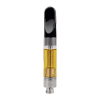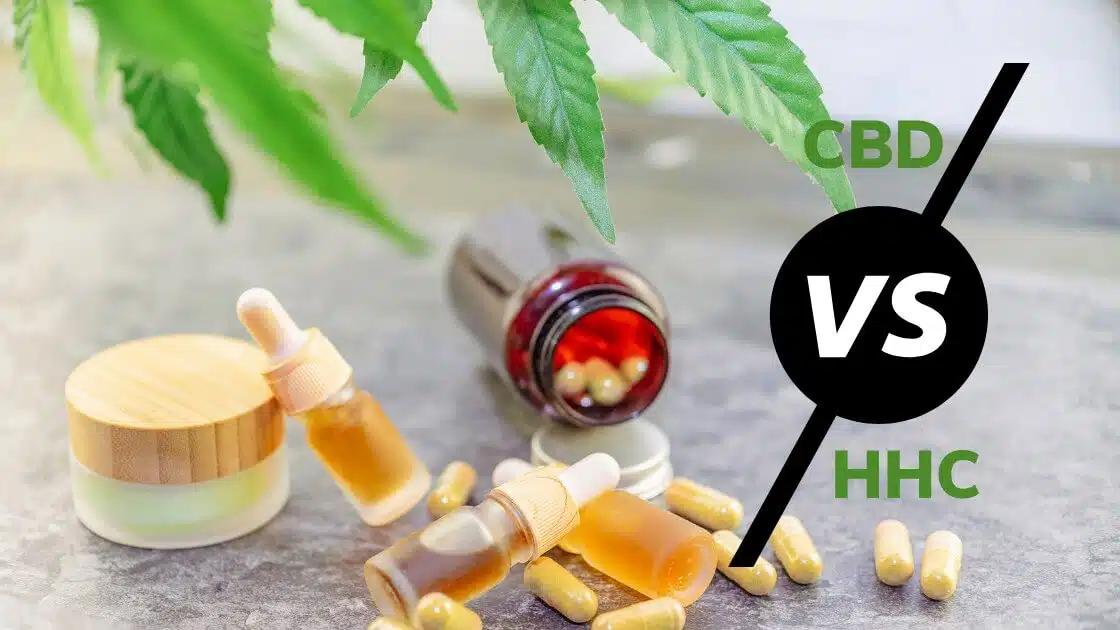Key Takeaways
| Cannabinoid | Key Features | Health Benefits | Legal Status | |-------------|--------------|-----------------|--------------| | CBD | Non-intoxicating, widely researched | Pain relief, anxiety reduction, anti-inflammatory, sleep improvement, anti-seizure | Varies by state in the US | | HHC | Psychoactive, structurally modified THC, more stable and heat resistant | Mood improvement, pain relief, inflammation reduction, nausea reduction, potential neuroprotection | Legal when derived from hemp |
1. Cannabidiol (CBD): A Non-Intoxicating Powerhouse
CBD, or Cannabidiol, is one of the most recognized and extensively researched cannabinoids. Its broad therapeutic potential and non-intoxicating nature have fueled a boom in the wellness industry.
### 1.1 Therapeutic Benefits of CBD
CBD offers a wealth of health benefits, underpinned by its interaction with the body's endocannabinoid system.
- **Pain Relief**: CBD influences the body's pain-signaling system, offering a natural alternative for managing chronic pain conditions.
- **Reduced Anxiety**: CBD supports the regulation of mood patterns, making it potentially useful in managing various anxiety disorders.
- **Anti-Inflammatory**: CBD's potent anti-inflammatory properties may help combat conditions such as arthritis and inflammatory bowel disease.
- **Improved Sleep**: CBD's calming effects may aid in improving sleep quality, offering hope for people struggling with insomnia.
- **Anti-Seizure Properties**: Research suggests that CBD can reduce the frequency and severity of seizures, especially in treatment-resistant epilepsy.
### 1.2 Legal Status of CBD
While CBD is a non-intoxicating cannabinoid, its legal status remains complicated in the US, varying from state to state. Consumers should familiarize themselves with their local laws to ensure they use CBD products responsibly.
2. Hexahydrocannabinol (HHC): A Rising Star
While CBD continues to dominate the cannabis wellness market, a novel cannabinoid, HHC or Hexahydrocannabinol, is rapidly gaining attention.
### 2.1 What Makes HHC Unique
Unlike CBD, HHC is a modified form of THC that is structurally altered through a process known as hydrogenation. This modification results in a compound that is more stable, resistant to UV and heat exposure, and offers unique therapeutic benefits.
### 2.2 Health Benefits of HHC
The benefits of HHC are just starting to be understood, with early insights pointing to several potential advantages.
- **Mood Improvement**: HHC seems to have a positive effect on mood, potentially offering support for mental health conditions.
- **Pain Relief**: Like CBD, HHC also provides pain-relieving properties, offering an additional tool in the fight against chronic pain.
- **Inflammation Reduction**: Early evidence suggests HHC may have anti-inflammatory properties, opening new avenues in inflammation management.
- **Nausea Reduction**: HHC might help manage nausea and vomiting, particularly in patients undergoing treatments such as chemotherapy.
- **Neuroprotection**: Some studies suggest that HHC could have protective effects against certain neurological diseases.
### 2.3 Legal Status and Consumption of HHC
Unlike CBD and despite its psychoactive properties, HHC derived from hemp is legal. HHC gummies are a prevalent method of consumption, offering a discreet, easy, and enjoyable way to benefit from this cannabinoid. However, it's important to note that due to its similarity to THC, HHC may appear on a drug test.
3. CBD Vs. HHC: Which One to Choose?
CBD and HHC offer an array of benefits, and the choice largely depends on individual needs. While CBD remains a dominant choice due to its extensive research and non-intoxicating nature, HHC, with its unique properties, presents a new frontier in cannabinoid wellness.
By understanding these cannabinoids, we're better equipped to navigate the cannabis landscape and make informed decisions about our health and wellness. The burgeoning cannabis industry continues to unfold new dimensions, and with further research, both CBD and HHC promise to unlock new therapeutic potentials.
Remember, the law surrounding cannabinoid use is evolving, and it's always best to stay informed about the latest developments in your region. While the future of cannabinoid research and use is undoubtedly promising, responsible consumption should be our utmost priority.
1. Why is HHC becoming more popular?
HHC, or Hexahydrocannabinol, is becoming popular due to its unique properties and potential health benefits. It’s derived from THC but exhibits more stability, and it’s more resistant to UV and heat exposure.
2. Does HHC have psychoactive effects?
Yes, unlike CBD, HHC does exhibit psychoactive effects. However, many users report that it provides a milder and more comfortable experience than THC.
3. How does HHC potentially benefit mental health?
HHC seems to have a positive effect on mood, making it potentially beneficial for managing certain mental health conditions. More research is needed to fully understand these benefits.
4. Is HHC legal to use in the US?
Yes, HHC is legal to use in the US as long as it is derived from hemp. However, due to its similarity to THC, it may appear on a drug test.
5. Are there different ways to consume HHC?
Yes, there are various ways to consume HHC, with gummies being a popular choice. They offer a discreet, easy, and enjoyable method of consumption.
6. Does HHC have the same benefits as CBD?
While HHC and CBD both offer a range of health benefits such as pain relief and inflammation reduction, HHC has unique benefits like mood improvement and potential neuroprotection. It presents a new frontier in cannabinoid wellness.







